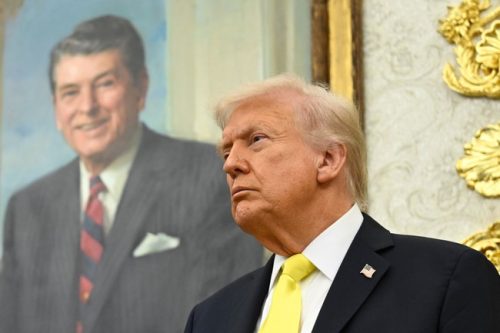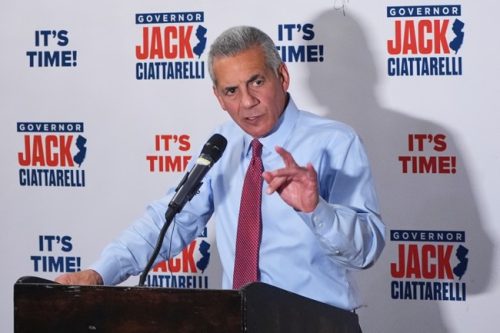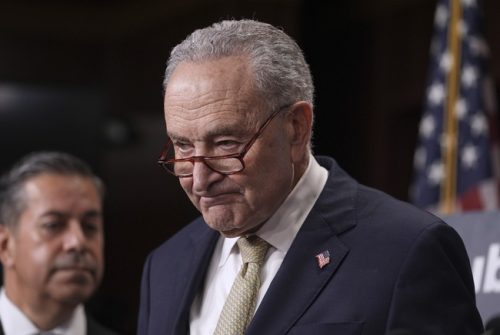Republican senators are drawing a line after former President Donald Trump urged the GOP to eliminate the Senate filibuster to force a government reopening. Several Senate Republicans say they will not back a “nuclear option” that would gut the filibuster, arguing it risks Senate stability and long-term GOP leverage. The clash highlights a split between an aggressive push for quick results and a conservative guardrail mindset that wants to preserve Senate norms.
Trump’s Truth Social post singled out party leaders while attacking Democrats and calling for radical action. He wrote that Senate Majority Leader John Thune (R-SD) and House Speaker Mike Johnson (R-LA) “are doing a GREAT job,” but Democratic lawmakers “are Crazed Lunatics that have lost all sense of WISDOM and REALITY.” That kind of language underlines why some Republicans are cautious about turning procedural punches into a constitutional brawl.
Trump then escalated, painting Democrats as intent on taking trillions from American healthcare and giving it to those he labels undeserving. “It is a sick form of the now “legendary” Trump Derangement Syndrome (TDS) that only comes from losing too much. They want Trillions of Dollars to be taken from our Healthcare System and given to others, who are not deserving — People who have come into our Country illegally, many from prisons and mental institutions,” Trump continued.
His post ended with a direct call to action that would change Senate rules: “It is now time for the Republicans to play their ‘TRUMP CARD,’ and go for what is called the Nuclear Option — Get rid of the Filibuster, and get rid of it, NOW!” That demand puts Republican senators in a tight spot between party pressure and institutional caution. The stakes are structural: removing the filibuster alters the operating rules of the Senate for years to come.
Some top Republicans pushed back almost immediately, signaling they prefer to defend the filibuster even amid a shutdown fight. Senate Majority Leader John Thune has maintained support for keeping the filibuster intact, and his office indicated that his position is unchanged. Senate Majority Whip John Barrasso’s office echoed that stance, showing a core leadership preference to preserve the 60-vote threshold for most legislation.
Other Republican senators voiced sharper resistance. Sen. Thom Tillis said he would consider resignation rather than back a move to eliminate the filibuster, a dramatic statement that underlines how seriously some senators view the institutional fallout. That kind of rhetoric isn’t just posturing; it signals real fractures in how Republicans want to win and govern.
The filibuster forces us to find common ground in the Senate. Power changes hands, but principles shouldn’t. I’m a firm no on eliminating it. https://t.co/b4YZKeauw3
— Senator John Curtis (@SenJohnCurtis) October 31, 2025
Sen. Markwayne Mullin made his position crystal clear, saying he would “absolutely not” vote to scrap the filibuster while leaving open the door for very limited fixes to prevent recurring shutdowns. Mullin’s stance reflects a broader Republican argument: protect the filibuster as a safeguard, but explore narrow, targeted mechanisms to avert future shutdowns. Practical conservatives often prefer surgical reforms to wholesale rule changes that could boomerang later.
Numbers matter. Eliminating the filibuster would require 51 votes, and with 53 Republican senators today, the margin for defections is tiny. Losing even three GOP votes would kill the plan, which explains why party leaders and many senators are reluctant to gamble the Senate’s rules on a single policy fight. The math makes clear why the push faces long odds without broad GOP consensus.
Editor’s Note: The Schumer Shutdown is here. Rather than put the American people first, Chuck Schumer and the radical Democrats forced a government shutdown for healthcare for illegals. They own this.
The disagreement exposes a broader tactical debate inside the Republican coalition: respond to political heat with sweeping rule changes or hold the institutional line and pick different fights. Senators who refuse to nuke the filibuster say they are protecting future Republican minorities from similar erosions when power inevitably shifts. That argument appeals to conservatives who value long-term advantage and the guardrails that stop politics from swallowing governing norms.
For Trump and allies who want fast, decisive victories, the filibuster can look like an obstacle worth eliminating. For a significant slice of Republican senators, however, the filibuster is a strategic tool and a check against rapid reversals. That divide will shape how the GOP handles shutdown brinkmanship and whether it chooses reforms that keep the Senate recognizable to the next generation of lawmakers.






